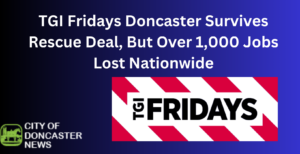Doncaster is well-known as a market town, boasting a rich history and vibrant local economy, with markets playing a central role. For centuries, markets have been integral to Doncaster’s identity, providing a space for trade and social interaction. In this guide, we’ll explore Doncaster’s key markets, their offerings, and the important role they continue to play today.
Overview of Doncaster Markets
Doncaster’s market tradition dates back over 800 years, making it one of the oldest in the UK. Today, the town still attracts thousands of visitors each week to its wide variety of stalls. With a reputation for fresh produce, antiques, and street food, Doncaster Market is a vital hub for locals and tourists alike. The town’s diverse market spaces offer something for everyone, and it remains an important part of the town’s economy and culture.
Doncaster’s Market Locations
Wool Market
- The Wool Market is a historic part of Doncaster’s market scene but has recently undergone a modern transformation. The space now includes street food vendors, independent traders, and entertainment events. It’s a perfect mix of old and new, with something to suit everyone, from traditional crafts to quirky food offerings.
Outdoor Market
- The Outdoor Market is a lively space featuring a vast range of stalls, offering everything from fresh fruit and vegetables to clothing and household items. Its historical significance remains, but it continues to evolve, with hundreds of stalls trading every week.
Corn Exchange
- The Corn Exchange, with its grand architecture, has been home to traders selling antiques, arts, and crafts for many years. This market is perfect for those searching for unique and vintage finds.
Fish Market
- The Fish Market is a staple in Doncaster, with generations of traders selling the freshest seafood. Known for its quality, it’s a go-to destination for anyone looking to source fish and seafood.
Market Days and Timings
Each market within Doncaster operates on specific days:
- The Outdoor Market runs on Tuesday, Friday, and Saturday from early morning until mid-afternoon.
- The Fish Market operates alongside the outdoor market but also opens on other weekdays, making it a consistent supplier for local residents.
- The Wool Market is open Wednesday through Sunday, with longer hours, offering a mix of food, drinks, and entertainment.
- The Corn Exchange generally opens on market days, but traders often attend during special events and antique fairs.
Seasonal markets, such as the Christmas market, bring a festive atmosphere, with special opening times and unique offerings.
Notable Stalls and Traders
Doncaster markets host an array of notable traders:
- K & K Fresh Produce is famous for its locally grown fruit and vegetables.
- Dave’s Fish Stalls at the Fish Market is known for its selection of fresh seafood.
- Independent artisan stalls at the Wool Market offer hand-crafted goods, from jewellery to home décor.
These long-standing traders contribute to the character of the markets and offer unique products you won’t find elsewhere.
Special Events and Attractions
Throughout the year, Doncaster’s markets play host to several special events:
- Food Festivals regularly draw in crowds, with an array of local and international street food.
- The Wool Market frequently hosts live music and entertainment events, making it a popular spot for families and social gatherings.
- Themed Markets like the Christmas and summer craft markets bring seasonal cheer and unique products from local artisans.
These events ensure there’s always something new and exciting happening at Doncaster’s markets, attracting both locals and tourists.
Tips for Visitors
For first-time visitors, the best times to visit the markets are early in the day, particularly on Saturdays when the markets are at their busiest. However, if you prefer a quieter experience, weekdays are generally less crowded. Parking is available nearby, but public transport options, such as buses and trains, provide easy access, as the markets are centrally located.
Bargain hunters should visit towards the end of the market day when traders may reduce prices on fresh produce. For food lovers, the Wool Market is a must-visit, with a wide range of international food stalls.
The Role of Doncaster Markets in the Local Economy
The markets play a crucial role in Doncaster’s local economy. They support independent traders, many of whom have been operating for decades. Local businesses benefit from the footfall generated by the markets, and the community remains loyal to traders, ensuring a steady flow of commerce. In addition, the markets provide employment for hundreds of people, directly and indirectly.
Recent redevelopment efforts, particularly in the Wool Market, have modernised the space, attracting a younger audience while still maintaining traditional elements that appeal to long-time visitors.
The Future of Doncaster Markets
Doncaster markets are constantly evolving, with ongoing efforts to modernise and improve facilities. There are plans to increase the focus on sustainability, with more eco-friendly stalls, reduced plastic usage, and support for local, organic produce. Additionally, market managers are exploring new ways to engage younger generations, such as pop-up events and digital integration.
Doncaster’s markets remain a cornerstone of the town’s community, economy, and culture. Whether you’re a local looking for fresh produce or a tourist seeking a unique shopping experience, Doncaster’s markets have something to offer everyone. Supporting these markets not only preserves a centuries-old tradition but also ensures their continued growth and relevance for future generations.





